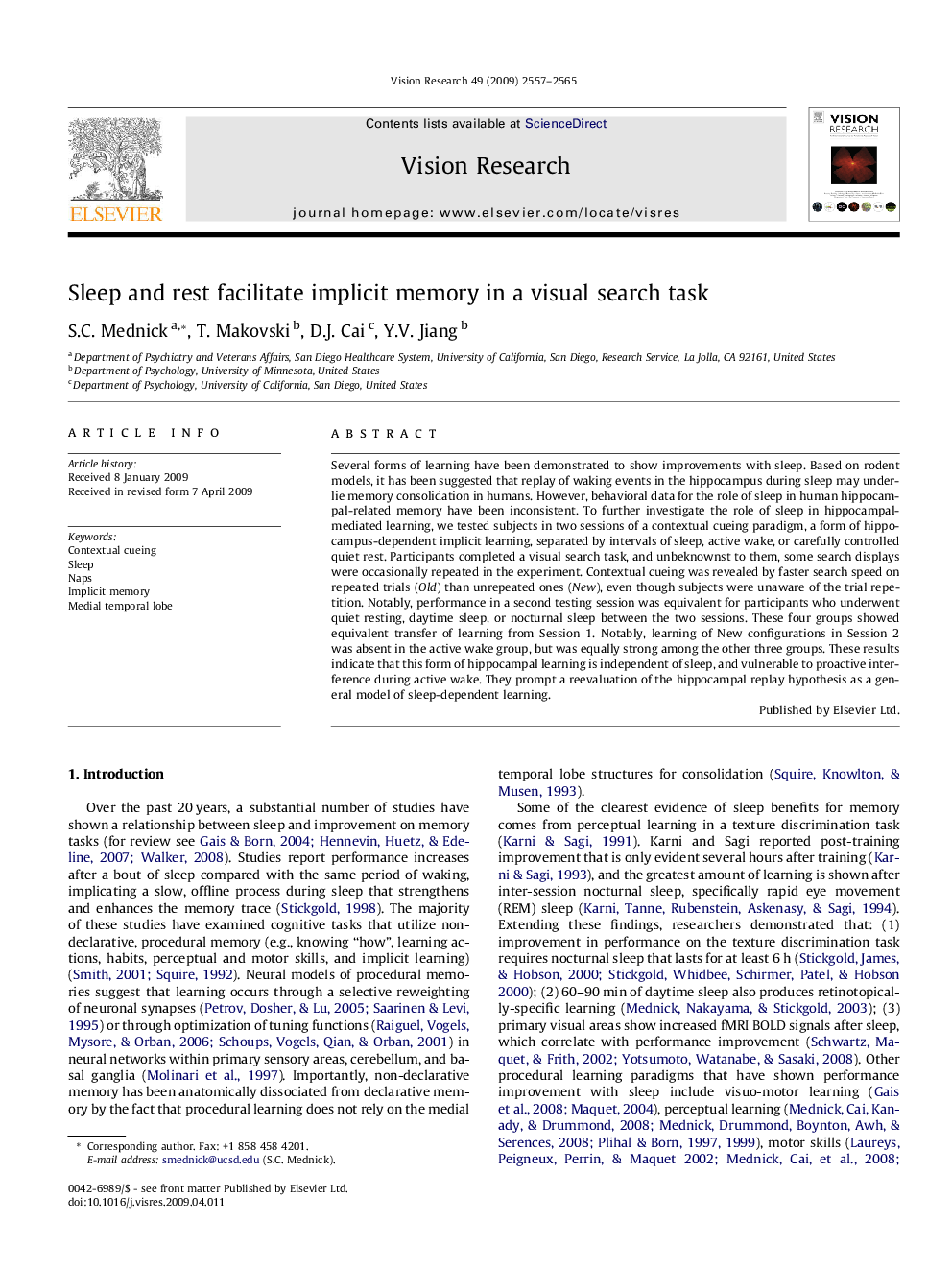| Article ID | Journal | Published Year | Pages | File Type |
|---|---|---|---|---|
| 4034686 | Vision Research | 2009 | 9 Pages |
Several forms of learning have been demonstrated to show improvements with sleep. Based on rodent models, it has been suggested that replay of waking events in the hippocampus during sleep may underlie memory consolidation in humans. However, behavioral data for the role of sleep in human hippocampal-related memory have been inconsistent. To further investigate the role of sleep in hippocampal-mediated learning, we tested subjects in two sessions of a contextual cueing paradigm, a form of hippocampus-dependent implicit learning, separated by intervals of sleep, active wake, or carefully controlled quiet rest. Participants completed a visual search task, and unbeknownst to them, some search displays were occasionally repeated in the experiment. Contextual cueing was revealed by faster search speed on repeated trials (Old) than unrepeated ones (New), even though subjects were unaware of the trial repetition. Notably, performance in a second testing session was equivalent for participants who underwent quiet resting, daytime sleep, or nocturnal sleep between the two sessions. These four groups showed equivalent transfer of learning from Session 1. Notably, learning of New configurations in Session 2 was absent in the active wake group, but was equally strong among the other three groups. These results indicate that this form of hippocampal learning is independent of sleep, and vulnerable to proactive interference during active wake. They prompt a reevaluation of the hippocampal replay hypothesis as a general model of sleep-dependent learning.
